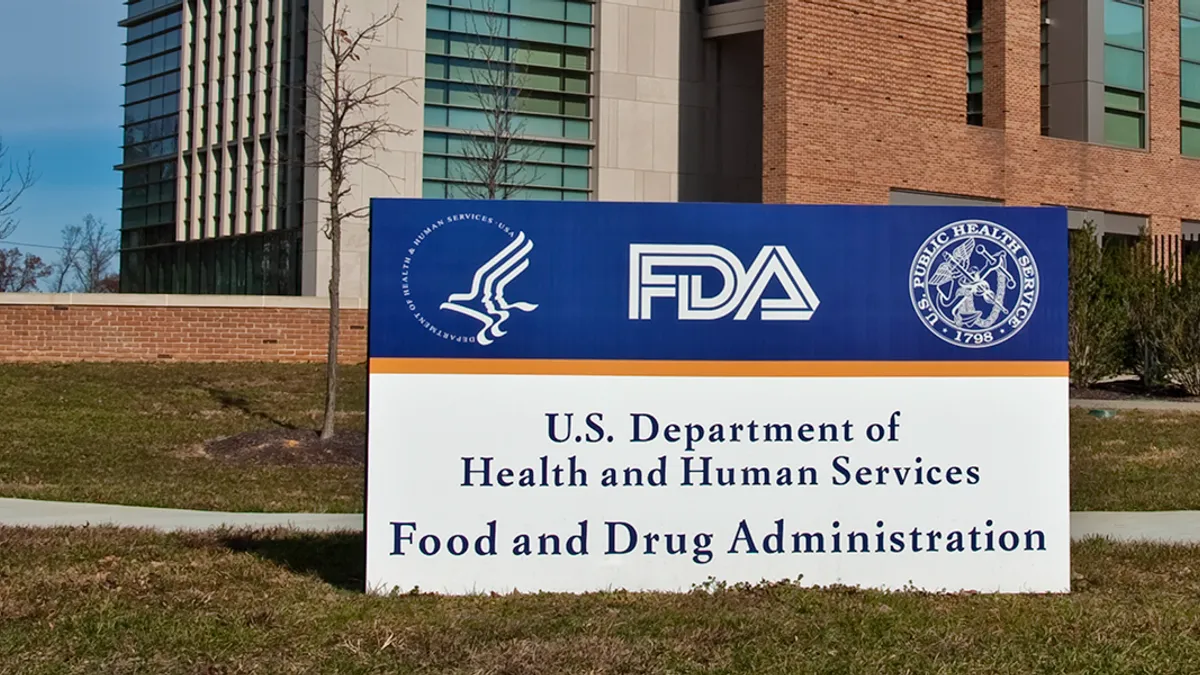Dive Brief:
-
FDA has categorized the voluntary recall of the BD Alaris PC Unit due to unresponsive keys as a Class I event.
-
The decision to treat the product withdrawal as the most serious type of recall comes after one patient suffered a serious injury potentially related to the fault. FDA is aware of 1,186 complaints about stuck or unresponsive keys on the device.
- BD disclosed the recall last month as part of a flurry of notifications about Alaris products. The product line has now been the subject of 18 Class I recall notices since March.
Dive Insight:
BD’s Alaris infusion pump unit is operating under an amended consent decree. In March, inspectors visited one of the unit’s facilities in San Diego, leading FDA to issue a Form 483 that flagged areas of non-conformance with the regulations. Either side of the inspection, BD issued a series of recalls related to its Alaris product line.
The latest recall to be categorized as a Class I event by FDA covers BD Alaris PC Unit Model 8015 and a handful of different keypad replacement kits. The more than 300,000 products are prone to having unresponsive or stuck keys. Stuck keys are effectively constantly pressed.
In informing healthcare professionals of the problem, BD said the device continues to infuse a drug or other substance as programmed when there is a fault with the keypad. However, users may be unable to make programming changes. The lack of an alarm for unresponsive keys means users may only become aware of the problem at a critical moment.
BD said the fault could delay the start of an infusion. If the settings need changing mid-infusion, the user may need to stop the process and restart using a different device. In patients receiving infusions critical to their survival, such delays could have severe consequences. BD had received one report of a serious injury as of the end of July and said the fault could theoretically lead to deaths.
Healthcare professionals can continue to use the devices until BD replaces the keypads. In the event a key becomes unresponsive or stuck, BD is advising users to stop using the device and send it to their biomedical engineering staff.
BD thinks the fault stems from “fluid ingress.” As such, the company’s advice targets cleaning staff. BD has asked cleaning staff to follow the current directions for use to reduce the risk of fluid ingress, for example by wringing out wet cloths before using them to wipe the device.
BD shared that advice in one of four recall notices it issued in relation to Alaris products at the start of last month. The other notifications covered faulty keypads on another Alaris product, an issue with the EtCO2 Module that could delay or interrupt patient monitoring, and a fault that caused some devices to display incorrect syringe types and sizes.
Those notifications followed a June alert about four new potential hardware faults, and recalls over the preceding 18 months that led BD to limit distribution to buyers that share certification of medical necessity. In light of the situation, FDA asked the company to submit a new 510(k) for review.
Last month, BD said it expects to submit the updated 510(k) around March 2021 or a little later. The company is using the time to perform human factor testing and other assessments needed to support a filing for FDA clearance. BD has estimated remediation could cost it $240 million.











